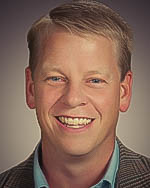Thirty-five percent of Americans think salvation is found outside of Christ. 66% think that people are by nature good. 76% of Americans today agree with Benjamin Franklin. He said, “God helps those who help themselves.” Likewise, these 76% think we turn to God on our own initiative.
So much for their views on human nature and salvation. What about American views of God?
32% think he does not show wrath, while 13% are not sure on the issue. 23% think that God makes mistakes. 34% think he only knows the future, but does not control the future.
And the Trinity? 33% think the Father is more divine than the Son. 63% think the Holy Spirit is a force and not a person.
These statistics come from a new survey “The State of Theology.” We at Ligonier Ministries partnered with Lifeway Research to survey a cross section of 3,000 Americans on 43 questions about God, the Holy Spirit, Christ, sin and salvation, heaven and hell, the Bible, church, and ethics. You can read all about the survey and see the full results here: TheStateOfTheology.com.
This survey takes the theological temperature of America and of American evangelicals. We have many polls coming at us these days. As much as we care about politics and moral issues, we know that underlying these matters is theology, and we wanted a barometer, a poll, on the state of theology.
Calvin said all knowledge comes down to two things: what we know of God and what we know of ourselves. Here’s what the survey shows on these two counts. We like God, even Christ for that matter, but we like Him on our own terms. We have tamed God. Of course this has a consequence for the other element of knowledge, the knowledge of ourselves. We’re by nature good, the survey says. As God comes down to size, we go up.
How we think about the doctrines of God and of humanity has consequences for all other doctrines. How those two dominoes fall controls the other dominoes down the line. Get them wrong, and you will continue merrily falling down in the wrong direction. And this survey shows that, too.
We should be concerned about what Americans think about theology. We go back to the first rule of our freshman speech class: know your audience. This is our context, our audience.
But we should be even more concerned about what Americans sitting in the pews of evangelical churches think about theology. So in our demographic cross-section, we had categories of Christian and non-Christian, church-goers and non-church-goers. We even had the categories of Evangelical Protestants, Black Protestants, Catholics, and Mainlines.
How did the Evangelical Protestants (EPs) do on these questions? You can check out TheStateOfTheology.com for the full breakdown. But, consider these samplings of the survey data.
51% of EPs think the slightest sin causes damnation. That is the simplest of a simple majority. We’re on the verge of tipping in the other direction. 38% of Americans “strongly agree” that we contribute to our salvation. And exactly 38% of American EPs also “strongly agree.”
While two-thirds of Americans think the Holy Spirit is a force, one-third of American EPs think the Holy Spirit is a force. That is to say, one-third of American EPs affirm heresy.
And how about views of the church? 52% of Americans think worshipping alone is a valid replacement for regularly attending church. Just over 30% of EPs thinks the same.
So what are we to make of the state of theology? Perhaps this survey merely confirms what we have suspected all along.
Americans like God, Christ, and even the Bible. But we like those things on our own terms and according to our own tastes.
But what we also see here is the trickle down of American cultural preferences into the American evangelical church.
One thing we should not see here is discouragement. Instead we should be encouraged. Encouraged that we still have work to do. Encouraged that we must preach the whole counsel of God from our pulpits, and encouraged that we must teach theology. The church is commissioned to make God known—that is not the God of our making, but the God who revealed Himself in the Bible.
C. S. Lewis said, “If you do not listen to theology, that will not mean that you have no ideas about God. It will mean that you will have a lot of wrong ones.”
Survey says, he’s right.











